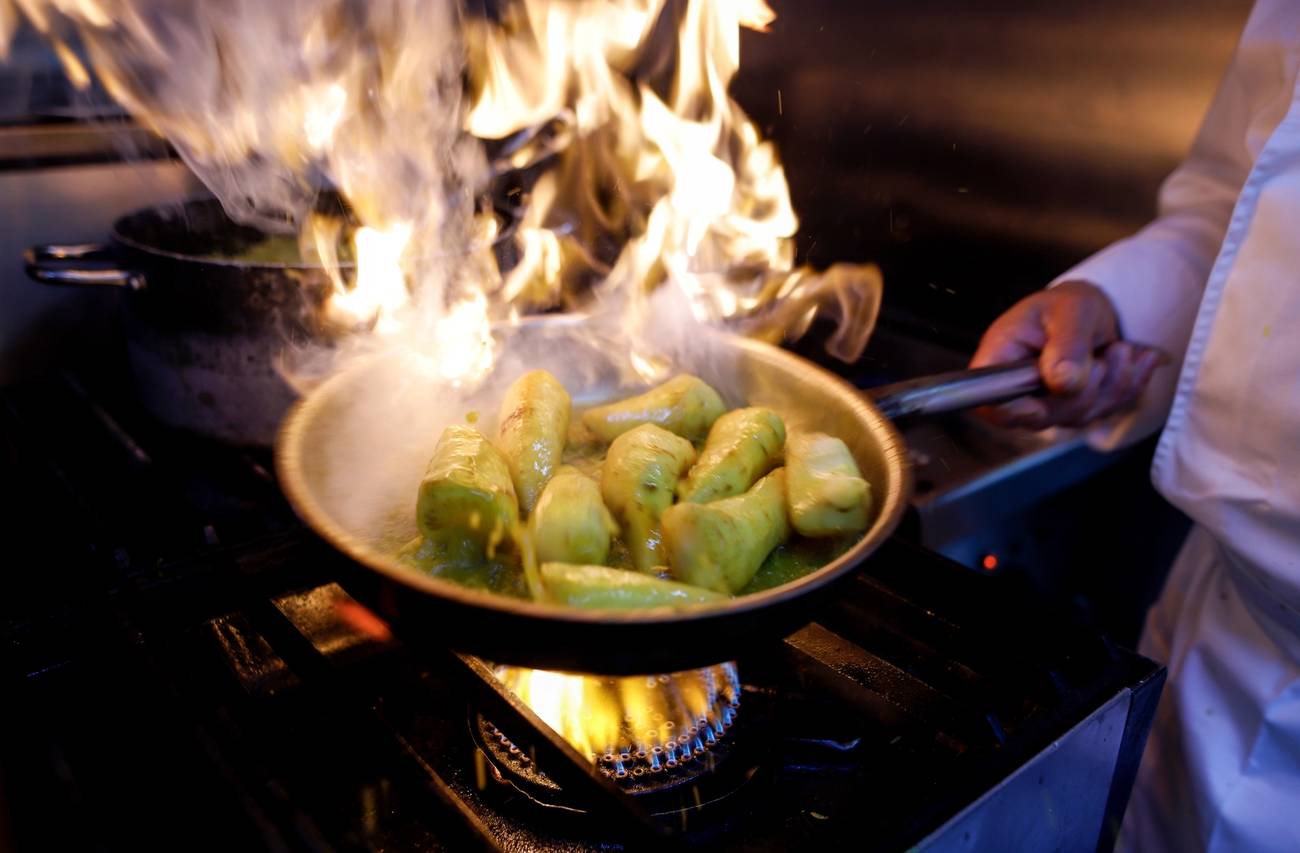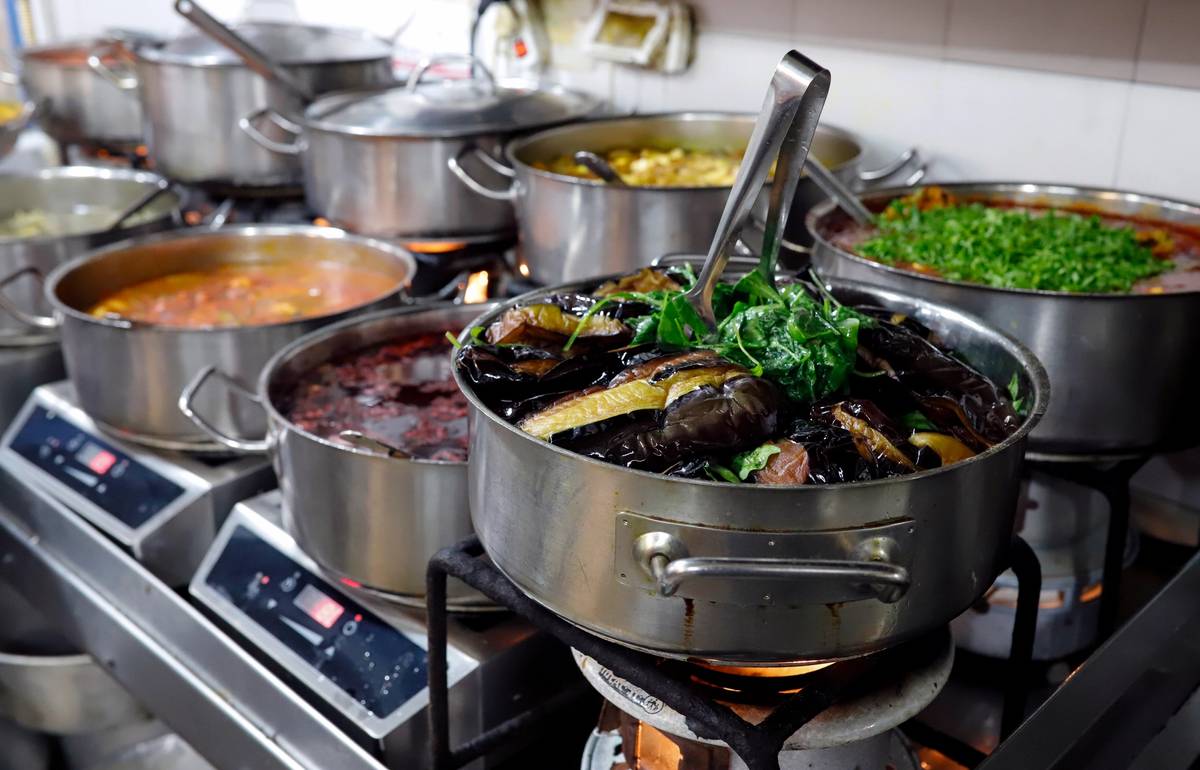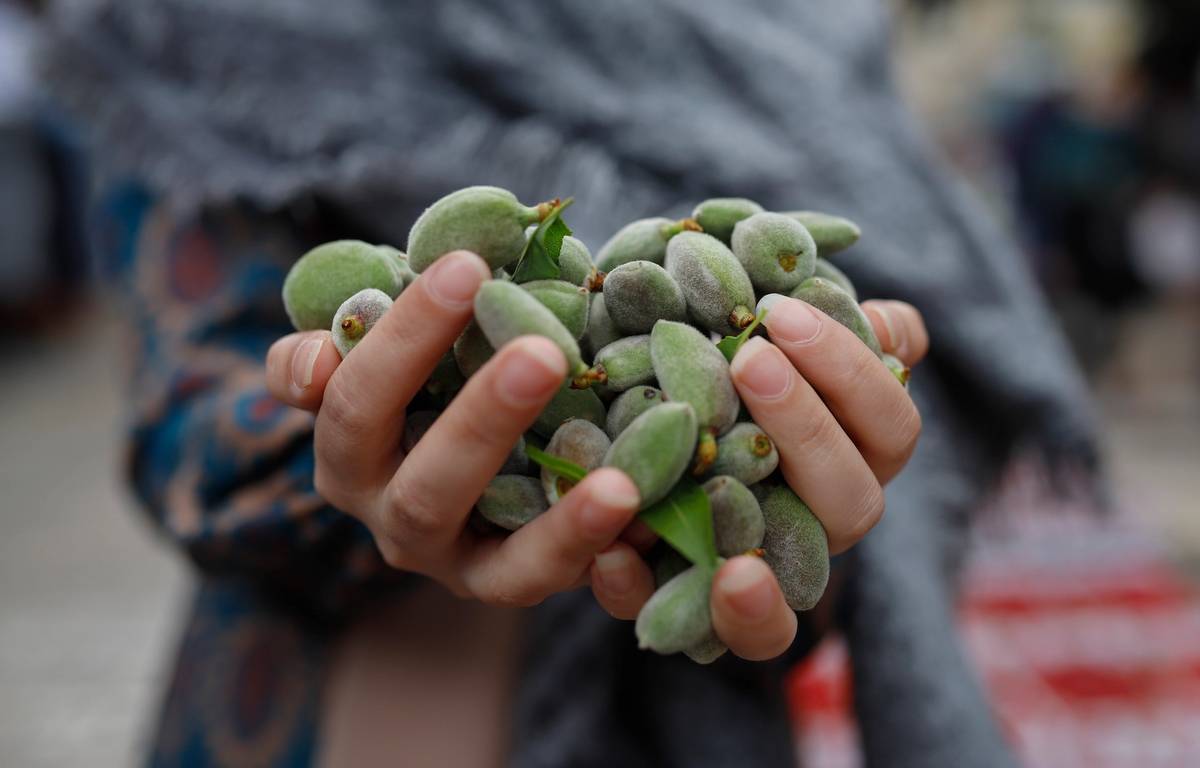Expanding the Israeli Menu
New projects highlight the ongoing evolution—and diverse roots—of the country’s cuisine



In recent months, one of the most comforting TV shows in Israel has been Grandma Cooked, in which comedian Tom Yaar cooks with Israeli grandpas and grandmas from a variety of backgrounds—born anywhere from a Druze village to Hungary. Some of the show’s best moments stem from the clashes of Yaar’s millennial energy and bubbly curiosity with the way the older cooks carry themselves, with quiet pride and experience. Grandma Cooked, pairing Yaar’s comedic chops with the exploration of traditional cooking techniques, is part of a new trend in the country: projects that shine a spotlight on Israel’s diverse culinary heritage in an entertaining, easily digestible way, with multigenerational appeal.
In Tel Aviv, the newly opened and ambitious Asif: Culinary Institute of Israel contains a café; a gallery; an expansive library of cookbooks in Hebrew, English, and Arabic; a rooftop farm; and a deli, as well as a kitchen in which culinary experiments and recipe testing are to be held. Asif is led by Naama Shefi, the founder of the NYC-based Jewish Food Society and Start-Up Nation Central, a nonprofit promoting Israeli innovation, with which Asif shares a building. The culinary institute is a nonprofit as well.
“The idea of founding a culinary institute in Israel was a result of a conversation I had with philanthropist Terry Kassel, at the onset of the COVID pandemic,” said Shefi, who splits her time between New York and Tel Aviv. “The physical space is important because food is an object of material culture; food culture is the product of shared experiences, genuine hospitality. We are using the digital space to provide access to the knowledge we are building about the food culture in Israel—not just to those who can come here but to anyone who can access the website.”
The opening, which took place in July, drew all the big names in the local food scene, from journalists involved with the project to celebrity chefs. Big names also hover over the content; the inaugural exhibition is dedicated to Nechama Rivlin, the late spouse of Israel’s former President Reuven Rivlin. Soon, star chef Erez Komarovsky will cook a special dinner here. Claudia Roden and Michael Solomonov curated a couple of the library’s bookshelves.
In Jerusalem, the Tower of David Museum had just launched its own foray into food history, with Eating in Jerusalem, an interdisciplinary “historical culinary project that has a real contemporary feel,” according to Rose Ginosar, director of development and international relations. Currently, Eating in Jerusalem consists of a weekly newsletter, a weekly story, and recipe via WhatsApp; for those who sign up for a designated WhatsApp group thread, there’s also a blog written by scholars highlighting hidden local tales and ingredients like almonds and the Jerusalem artichoke, and in-person food tours in the Old City and the Machane Yehuda Market. Soon, webinars in Hebrew and English will join the roster.

“Jerusalem, and the Tower of David, are on the seam of East and West, old and new, this area always being a gateway for people bringing new foods in,” said Ginosar. Back in 1992, the museum held an exhibition, a bit ahead of its time, named Ta-Arucha (arucha in Hebrew is meal, taarucha is an exhibition) curated by the iconic food writer Sherry Ansky. “It was based on the same idea—history and food are really interlinked, and in Jerusalem even more so,” said Ginosar. “Back then, serious museums didn’t talk about food.”
This is certainly not the case anymore. One of the most talked about Israeli openings in 2021 is ANU Museum of the Jewish People, a long-awaited reboot of the Nahum Goldmann Museum of the Jewish Diaspora. The refurbished structure, with brand new interactive exhibitions and an overall tech gloss, launched a culinary arm titled Foodish in May. Combining a website chronicling family recipes and food stories submitted by chefs, bloggers, and civilians, plus live events and future exhibitions, Foodish is another lively hub of renewed culinary curiosity.
Why the sudden abundance? Shefi thinks the seed was planted about 15 years ago. “Drawing on rich influences from across the Jewish diaspora, regional Levantine and local Palestinian traditions, and a unique terroir,” she said, “creative Israeli chefs were starting to develop an extraordinary kitchen that was attracting attention both domestically and internationally. Today, people are hungry for more opportunities to learn, to explore, to share. That’s how a food culture evolves. At the same time, the interest and excitement for Israeli food around the world has grown.” Ginosar, too, said that the proliferation of cooking reality TV shows in Israel, as well as social media, have made food a nationwide obsession.
All of these projects have things in common: the push and pull of modernity and nostalgia, slick websites, and awareness of topics that have taken the global food community by storm in recent years—namely, origins and appropriation. While the language around Foodish is decidedly centered on Judaism, Eating in Jerusalem takes a more ecumenical approach. “Seeds of an eggplant may have been discovered in ancient Jerusalem, but it migrated from India,” said Ginosar. “If you start digging deep, you find that mostly all foods have been appropriated and that foods are universal.”
At Asif, the emphasis is on inclusivity: “Asif is not a Jewish project, it is an Israeli project,” said Shefi. “With the understanding that Israeli culinary culture was shaped by the influence of local traditions, Asif will host chefs from countries in the region, initiate collaborations among local kitchens, and study the impact of Palestinian cooking on the Israeli kitchen in order to strengthen a crosscultural dialogue.”

A good example of such dialogue is Sir la Salam, a relatively new initiative by Dafna Kremer and Muzna Bishara, which recently received an honorary acknowledgement from former President Reuven Rivlin. Kremer is involved with ANU at a capacity she can’t yet disclose, while Bishara is a content manager at Asif, and together the two curate a stand-alone online platform and series of Israeli-Palestinian dinners that tackle questions of identity and belonging through food.
The new wave of historically and identity-minded culinary projects comes, Kremer said, on the back of two major waves: the pandemic-induced nostalgia for the rapidly disappearing older generation and, specifically in Israel, a general sense of “collective dissolution” experienced under the divisive and prolonged governing of former Prime Minister Benjamin Netanyahu. “We started the conversation shortly after the Basic Law passed in Israel in 2018,” said Kremer, referring to the law referring to Israel as the Jewish Nation State. “We started talking about how when you don’t know someone, it’s easier to hate them; food is something we all consume, it preserves tradition and culture, and highlights much of the likeness, not the difference.”
Knowledge, rather than an attempt to commemorate or redefine, is also a key value at Asif, highlighting an interesting new phase in the way Israel examines its own food identity: “I think we are far too young a country, too young a culture, to be able to commemorate anything, especially our food culture,” said Shefi. “We want to provide a space where we build knowledge, acknowledge our heritage, many influences, and find new innovations. There are difficult issues we need to discuss and debate, just as there are delicious dishes that we need to enjoy and celebrate.”
Flora Tsapovsky is a San Francisco-based food and culture writer.